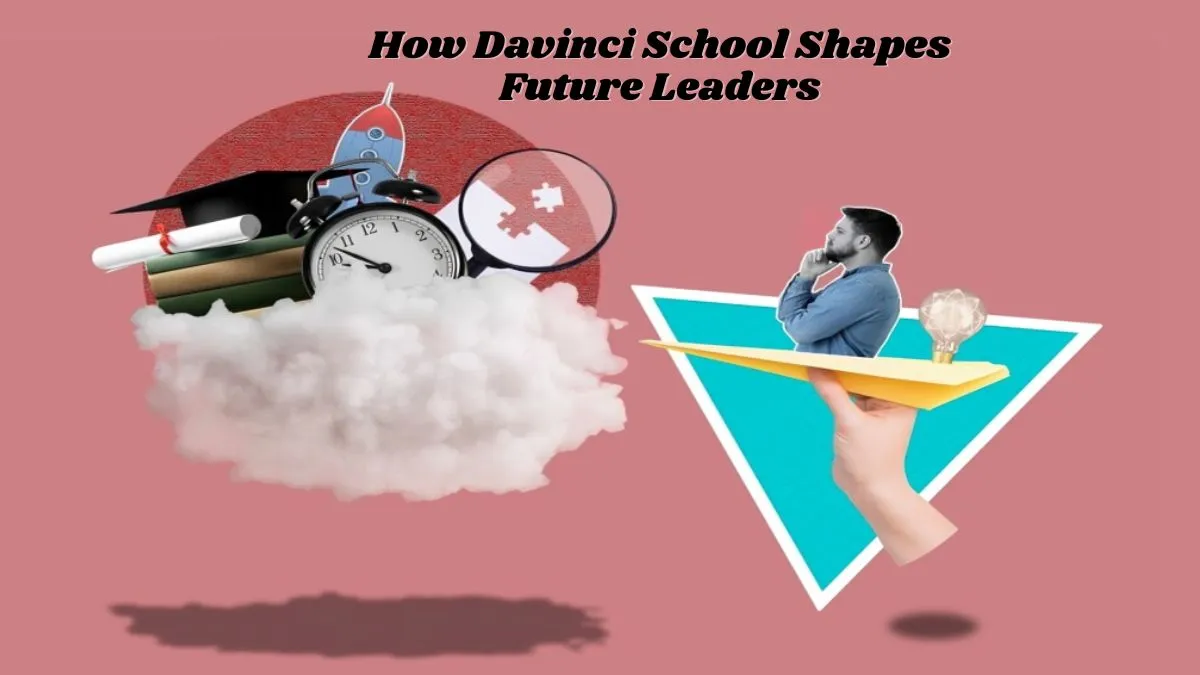EDUCATION
Empowering Young Minds: How Davinci School Shapes Future Leaders

Introduction to Davinci School
Welcome to the world of Davinci School, where creativity meets innovation. This unique educational institution is not just about textbooks and exams; it’s a vibrant community dedicated to shaping future leaders. At Davinci School, the emphasis is on empowering young minds through modern teaching strategies and personalized learning experiences. Here, students are encouraged to think critically, collaborate with peers, and explore their passions within a supportive environment. Join us as we delve into how this remarkable school fosters leadership qualities in its students while preparing them for success in an ever-evolving world.
Innovative Teaching Methods at Davinci School
At Davinci School, education transcends traditional boundaries. The teaching methods are designed to ignite curiosity and creativity in every student.
- Classrooms come alive with project-based learning strategies. Students tackle real-world problems, fostering critical thinking skills that prepare them for future challenges.
- Technology plays a significant role too. Interactive tools enhance engagement and personalize the learning experience. Instead of passively receiving information, students actively participate in their educational journeys.
- Collaborative projects encourage teamwork and communication among peers. This approach builds academic skills and nurtures social interactions vital for leadership development.
- Teachers at Davinci School embrace flexibility in their instructional techniques, adapting lessons to meet individual needs while promoting a growth mindset across all grade levels.

Personalized Learning for Each Student
At Davinci School, personalized learning is the cornerstone of education. Each student’s unique strengths and interests are recognized from day one. This approach fosters a sense of belonging and encourages active participation.
Teachers work closely with students to develop tailored learning plans. Whether it’s through one-on-one sessions or small group activities, each child receives the attention they need to thrive.
Technology plays a significant role in this process as well. Interactive platforms allow students to progress at their own pace while receiving instant feedback on their performance.
This flexibility nurtures critical thinking skills and creativity, empowering young minds to explore subjects that ignite their passion. By honoring individual learning styles, Davinci School transforms traditional education into an engaging journey for every learner.
Extracurricular Activities and Leadership Opportunities
At Davinci School, extracurricular activities serve as a vital extension of classroom learning. From creative arts to competitive sports, students have the chance to explore their passions and develop new skills.
- Leadership opportunities abound through various clubs and organizations. Students can take charge as club presidents or team captains, fostering teamwork and responsibility. These roles encourage them to think critically and act decisively.
- Community service projects also play a significant role in shaping future leaders. Engaging with local initiatives allows students to understand societal needs while making meaningful contributions.
- Cultural events further enrich the student experience at Davinci School. They provide platforms for self-expression and collaboration among peers from diverse backgrounds.

This holistic approach ensures that every student is academically prepared and equipped with essential life skills in an ever-changing world.
Success Stories of Davinci School Alumni
The success stories of Davinci School alumni are truly inspiring. Graduates often share how the school’s emphasis on creativity and critical thinking shaped their paths. Many have gone to prestigious universities, pursuing engineering, arts, and business degrees.
One notable alumnus launched a tech startup while still in college. His innovative approach to problem-solving was refined during his time at Davinci School. Another graduate is making waves in the nonprofit sector, advocating for educational reform based on her experiences in leadership roles at school.
These stories highlight that the lessons learned extend far beyond academics. They reflect a commitment to lifelong learning and community engagement instilled from an early age. Alumni frequently return to mentor current students, creating a powerful network of support that embodies the spirit of Davinci School’s mission.
Parent and Student Testimonials
At Davinci School, the voices of both parents and students echo a resounding sense of satisfaction. Parents often express gratitude for the personalized attention their children receive. They appreciate how teachers are invested in each student’s growth.
Students share stories about engaging lessons that spark curiosity. Many highlight how collaborative projects foster teamwork and creativity. The environment encourages them to think critically and embrace challenges.
One parent noted how their child transformed from shy to confident through supportive classroom experiences. Another praised the school’s commitment to nurturing leadership skills and preparing young minds for future endeavors.
Students feel empowered by opportunities such as clubs and community service initiatives. These activities enhance learning and build strong character traits integral to success beyond school walls.
The testimonials reflect a vibrant community where education goes hand-in-hand with personal development, shaping well-rounded individuals ready for tomorrow’s world.
Conclusion: Preparing the Next Generation of Leaders
Davinci School is more than just an educational institution; it’s a breeding ground for the next generation of leaders. Through its innovative teaching methods and personalized approach, students are not only prepared academically but also equipped with essential life skills. The emphasis on extracurricular activities fosters teamwork, creativity, and resilience.
Alumni success stories showcase the lasting impact Davinci School has on its graduates. Their experiences and achievements serve as inspiration for current students who aspire to make their mark in the world.
Parent and student testimonials reflect a strong sense of community and support that defines Davinci School. The collaborative environment nurtures young minds, encouraging them to pursue their passions confidently.
Empowering young people today means shaping capable leaders for tomorrow. At Davinci School, this mission thrives daily as educators ignite curiosity and passion within each student. Preparing future leaders is not just an aim—it’s a commitment shared by everyone involved at Davinci School.
Is this article helpful? Keep reading our blog for more.
-

 BIOGRAPHY9 months ago
BIOGRAPHY9 months agoBehind the Scenes with Sandra Orlow: An Exclusive Interview
-

 HOME1 year ago
HOME1 year agoDiscovering Insights: A Deep Dive into the //vital-mag.net blog
-

 HOME1 year ago
HOME1 year agoSifangds in Action: Real-Life Applications and Success Stories
-

 BIOGRAPHY1 year ago
BIOGRAPHY1 year agoThe Woman Behind the Comedian: Meet Andrew Santino Wife




























